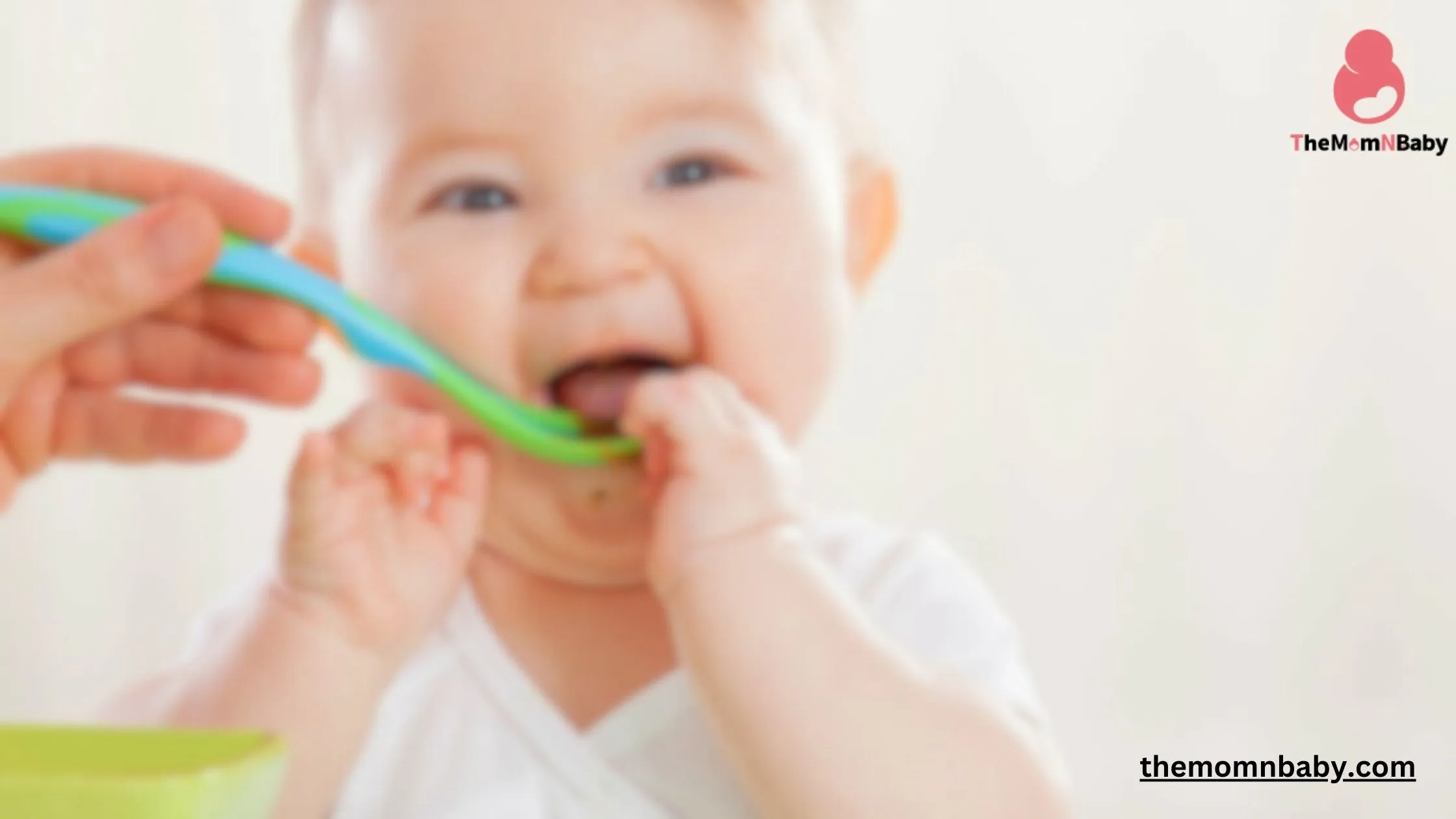
The food a pregnant mother eats is very important for her baby’s brain development. Nutrients in the food help the baby’s brain grow well. Things like vitamins and healthy fats are needed for this. If the mother doesn’t eat right, the baby might have problems with thinking and learning later. So, eating well and staying healthy during pregnancy is super important for the baby’s brain.
The Impact of Maternal Nutrition on Baby’s Brain Development
If you’ve just found out that you’re going to have a baby, you’re likely filled with excitement and wonder about how your baby is growing and developing inside you. Questions like “What color will my baby’s eyes be?” or “When can my baby hear me?” might be running through your mind. And among these questions, you might also be curious about your baby’s brain development.
The good news is that baby’s brain development usually follows a pretty predictable schedule. In fact, the fetal nervous system, which includes your baby’s brain and spinal cord, is one of the first systems to develop. So, as you continue with your prenatal care and get those ultrasounds, your baby will be steadily moving along its development path.
Your Baby’s Brain
Before we dive into the details of fetal brain development, let’s first understand the different parts of your baby’s brain. Scientists recognize five main regions of the brain: the cerebrum, cerebellum, brain stem, pituitary gland, and hypothalamus.
– Cerebrum: This is the largest part of the brain, responsible for thoughts, feelings, and memories. It includes the cerebral cortex, which houses areas like the frontal and temporal lobes.
– Cerebellum: It’s in charge of motor control, helping your baby move around.
– Brain Stem: This part controls your baby’s most vital functions, like heart rate, breathing, and blood pressure.
– Pituitary Gland: This tiny gland releases hormones that affect your baby’s growth and metabolism.
– Hypothalamus: It regulates body temperature, hunger, thirst, sleep, and emotions.
These brain regions begin developing even before birth, and there’s much more development to come after your baby is born.
How Your Baby’s Brain Develops
Once you discover your pregnancy, your baby’s brain is already in the early stages of development. About four weeks after conception, the neural plate forms, laying the foundation for your baby’s brain and spinal cord. It starts to grow and fold, eventually becoming the neural tube. This tube, running along your baby’s back, is crucial for brain and spinal cord development.
First Trimester baby’s brain development:
Around seven weeks into your pregnancy, your baby’s brain and face start to take shape. As the neural tube closes, it divides into three sections: the forebrain, midbrain, and hindbrain. Just behind the hindbrain is the precursor to your baby’s spinal cord. Over time, these areas will develop into the five distinct brain regions. You’ll also notice the beginnings of your baby’s nostrils and the formation of retinas.
Around week six, your baby’s brain starts showing the first signs of electrical activity. This represents the first synapses, allowing neurons to communicate, though it’s still quite basic. By the tenth week, your baby’s head becomes rounder, and by the eleventh week, the head still makes up about half of their length, although the body will catch up soon.
Read More : Pregnancy-week-by-week
Second Trimester baby’s brain development:
In this period, your baby’s brain begins to direct the diaphragm and chest muscles to practice breathing. They also start developing their first sucking and swallowing reflexes. By 21 weeks, your baby’s natural swallowing reflex enables them to ingest several ounces of amniotic fluid each day, meaning they’re also getting a taste of the world.
By the end of the second trimester, your baby’s brain stem, responsible for controlling heart rate, breathing, and blood pressure, is nearly fully developed, positioned just above the spinal cord and beneath the cerebral cortex. At this point, your baby can startle in response to loud noises outside the womb and may even turn towards your voice or your partner’s. Around week 28, fetal brainwave activity shows sleep cycles, including REM sleep, which is when dreaming often occurs.
Third Trimester baby’s brain development:
In the last trimester, your baby’s brain almost triples in weight, and there’s rapid growth of neurons and wiring. The brain’s surface becomes grooved, resembling the familiar pictures of adult brains. The cerebellum, responsible for motor control, grows exceptionally fast. By the time your baby is born, their brain closely resembles that of an adult. However, it’s important to remember that while the structure is there, the full functionality takes time to develop in response to your baby’s environment.
Factors Impacting Fetal Brain Development
Several factors can affect fetal brain development, but most healthy women won’t need to make drastic changes to support it. The key to optimal brain growth is maintaining a healthy lifestyle, which includes eating well and staying active. It’s also essential for pregnant women to avoid alcohol and cigarettes, as these substances can harm brain cell formation.
Infections: Infections pose the most significant risk to the growing baby. Fortunately, most mothers are immune to the most dangerous infections, like chickenpox and measles. Still, conditions such as toxoplasmosis, certain sexually-transmitted diseases, and cytomegalovirus should be discussed with your doctor.
Stress: Research suggests that high stress levels during pregnancy can impact brain growth and development. One study found a link between a mother’s stress during pregnancy and changes in her unborn child’s neural connectivity. Reducing stress through relaxation techniques like breathing exercises, journaling, and meditation can be helpful.
Choline: Choline, an essential nutrient found in foods like eggs, beef, and liver, plays a role in preventing developmental issues in unborn babies, even when moms are dealing with infections like the flu. It’s not commonly found in prenatal vitamins, so consult your doctor before considering supplements.
How You Can Support Your Baby’s Brain
As a mother, you want to give your baby the best possible start in life. Follow your doctor’s advice and consider these tips to support your baby’s brain development:
Feed Your Body:
- Eating a healthy diet, drinking water, and taking prenatal vitamins provide the nourishment your baby’s brain needs for optimal growth. Consult your doctor before adding any supplements, even over-the-counter ones.
Get Plenty of Exercise:
- Talk to your doctor before starting an exercise routine if you weren’t active before pregnancy. Typically, activities like walking, water aerobics, and prenatal yoga are safe options. Be mindful not to overexert yourself.
Avoid Toxins:
- Limit exposure to environmental toxins, such as cleaning supplies, and pay attention to air quality. Try to minimize exposure to pollutants from heavy traffic, but don’t stress about factors beyond your control.
Manage Your Stress:
- High stress levels during pregnancy can have adverse effects on fetal brain development. Reduce stress by lightening your workload and practicing relaxation techniques like deep breathing, journaling, and meditation.
Talk to Your Baby Bump:
- Regularly talking to your baby in the womb can lay the foundation for their social and emotional development, boost language and memory skills, and strengthen your bond.
Play Music:
- Playing music, especially classical tunes, can be relaxing for you and introduce your unborn baby to different sounds and tones.
Give Up Alcohol and Smoking:
- Avoid smoking and alcohol during pregnancy, as they can impair brain cell development and lead to cognitive issues.
By focusing on these steps and maintaining a healthy lifestyle, you can significantly support your baby’s brain development and ensure that they have the best chance to grow and develop as they should. Always remember to consult your healthcare provider for personalized advice and guidance throughout your pregnancy journey.
FAQ Fetal or Baby’s brain development
Q. Why is maternal nutrition important for fetal brain development?
– Maternal nutrition is vital for fetal brain development because the nutrients a mother consumes are essential for building her baby’s brain.
Q. What nutrients are particularly important for fetal brain development?
– Key nutrients include folate, omega-3 fatty acids (DHA), iron, and choline.
Q. Can I get all the necessary nutrients from my regular diet during pregnancy?
– A balanced diet can provide many essential nutrients, but some women may need supplements, such as prenatal vitamins, under the guidance of their healthcare provider.
Q. Are there foods I should avoid during pregnancy for optimal brain development?
– Yes, avoid high-mercury fish, alcohol, excess caffeine, undercooked/raw seafood, eggs, and unpasteurized dairy products.
Q. How does stress during pregnancy affect fetal brain development?
– High maternal stress may alter neural connectivity in the developing brain. Reducing stress through relaxation techniques is advisable.
Q. Are there any lifestyle choices that can support fetal brain development?
– Yes, lifestyle choices like regular physical activity (with doctor’s approval), adequate sleep, avoiding smoking and secondhand smoke, and engaging in activities like reading and playing soothing music can promote healthy fetal brain development.






